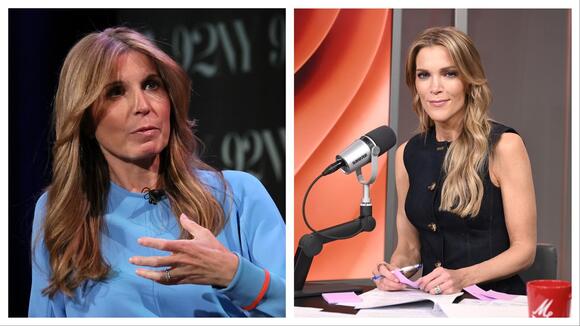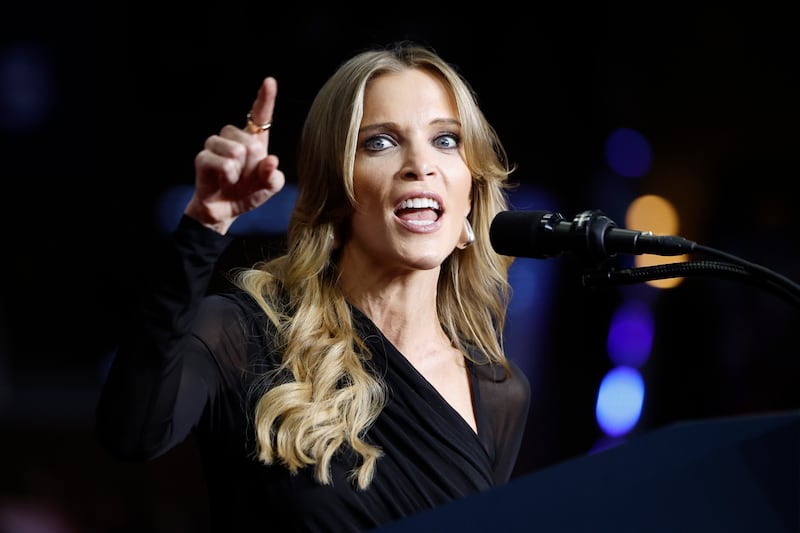Nicolle Wallace ‘Confounded’ by Megyn Kelly’s ‘Hateful’ Turn

In a revealing conversation on the podcast “On with Kara Swisher,” MSNBC host Nicolle Wallace shared her astonishment at Megyn Kelly’s recent transformation into a more hostile and antagonistic media figure, especially toward women. Wallace, who once held a deep admiration for Kelly’s journalism during her tenure at Fox News, expressed her disappointment at the current trajectory of Kelly’s content on platforms like podcasts and YouTube. Once a trusted voice, Kelly now seems to convey an unsettling tone that many, including Wallace, find troubling and perplexing.
A Shift in Media Landscape

The dialogue between Wallace and Swisher highlighted a significant shift within the landscape of independent media. Kelly, who has been a prominent figure in political journalism, once garnered respect for her insightful commentary and questions. However, her recent endeavors reflect a departure from her previous professional ethos. Wallace noted that Kelly’s current projects often seem fueled by an angry narrative that detracts from meaningful dialogue.
Throughout their discussion, Wallace acknowledged a crucial point raised by Kelly regarding how audience relationships influence content creation. This acknowledgment plays into the broader trends shaping contemporary media, where creators often mold their work to align with audience expectations and emotions. Wallace expressed concern that in pursuing sensationalism, Kelly may be compromising the professional standards that once made her work noteworthy.
Women in the Crosshairs

A particularly striking aspect of their conversation was the observation that Kelly appears to be more critical of women now than she was in her earlier career. Wallace and Swisher both lamented this shift, noting how Kelly’s former brand of journalism included a degree of respect and consideration for women in the public sphere. They pointed out that her recent rhetoric often begets an environment of hostility rather than one of constructive debate.
This shift raises broader questions about the role of women in journalism, especially in an era where media coverage still grapples with issues of representation and fairness. Many female journalists aspire to uplift each other, yet Kelly’s current position seems at odds with this goal. As Wallace and Swisher noted with a hint of humor, the change in Kelly’s approach has left her audience bewildered and confused, indicating a troubling trend among influential media figures.
Reflections on Political Journalism

Wallace and Swisher’s reflections on Kelly’s past performance provided a juxtaposition against the problematic nature of her recent content. Once celebrated for delivering serious political analysis, Kelly has now moved toward content that embodies a considerable level of anger. This transition not only impacts Kelly’s credibility but also reverberates throughout the industry, sparking discussions about the tone and purpose of political journalism today.
The ramifications of this kind of content go beyond individual figures like Kelly. It reflects a broader cultural moment where hostility can sometimes overshadow a commitment to informed discussion. Viewers might be left questioning the integrity of journalism if prominent figures diverge from delivering substantive, balanced viewpoints. The panelists’ discussion served as a microcosm of the pressing issues that dominate the current media landscape, where anger can often take precedence over reason and empathy.
As Wallace concluded, this change in Kelly’s media persona represents a profound shift, evoking both disbelief and concern among her peers. This evolution calls for introspection not only from Kelly but also from her audience regarding the type of content they choose to consume and the implications behind it.
Conclusion
The conversation among Nicolle Wallace and Kara Swisher underscores the complexities and challenges facing media figures today, particularly women who dominate the industry. As the dynamics of viewership and content creation evolve, audiences are encouraged to think critically about the media they consume and the narratives being pushed. As consumers of information, it is vital to seek out voices that foster constructive dialogue rather than divisive rhetoric. Engaging with the content that aligns with our values is essential to promoting a healthier media landscape. Join the conversation and reflect on the media influences in your life.


